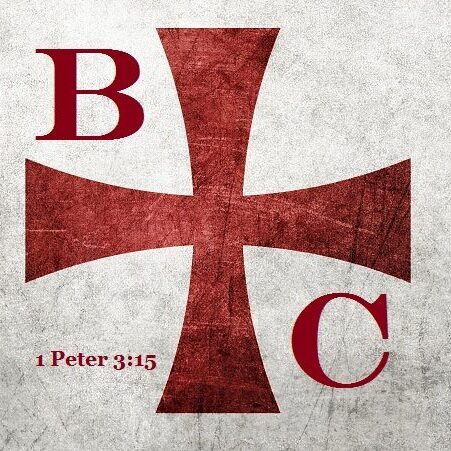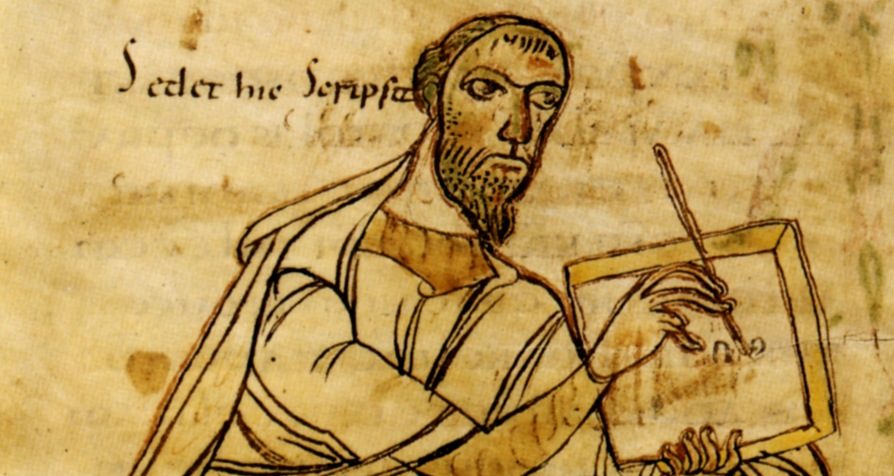By: Daniel Sloan, Ph.D. | April 30, 2023
Many Christians do not really think about the authorship of many of the books of the Bible. They usually have one of two thoughts: either the traditional author of the book, usually the title of the book, is the author of the book, or they just do not worry about authorship and assume that whoever wrote the book was inspired by the Holy Spirit, and so it simply does not matter. Some books of the Bible have unknown authors, like the books of Kings or Chronicles. Other books specifically identify the author and time of the book, such as the book of Isaiah or the book of Daniel. From an apologetic standpoint, the authorship of many of the books of the Bible can play a large role in interpretation.
Prior to the Enlightenment, traditional authorship of Biblical books was basically accepted with very few exceptions.[1] With the advent of the Enlightenment and the rise of religious skepticism, scholars began to question the authorship of many of the books of the Bible. They questioned if Moses wrote the Pentateuch with the JEPD theory from Julius Wellhausen.[2] They questioned if Isaiah or Daniel wrote their books, largely because of the immense amount of predictive prophecy that occurs in those two books. Even the authorship of the Gospels began to be questioned. While many Christians may think that this is not an issue, these attacks have weakened the Bible in several areas, including prophecy, historical reliability, and inerrancy and so understanding and defending the authorship of books of the Bible that are identified in the Bible is vital.
Why Biblical Authorship Matters for Predictive Prophecy
Predictions in Isaiah
First, authorship matters because it impacts the predictive prophecy of the Bible. For example, Isaiah 44-45 gave a prophecy that Cyrus would deliver the Jews out of exile. This event occurred historically in 539 B.C. when Cyrus the Great conquered Babylon and allowed the Jews to return to their homeland. The traditional dating for the Book of Isaiah is from 740-680 B.C., meaning that God, through the words of Isaiah, made this prediction over 100 years in advance.
Critical scholars deny that Isaiah could make this prediction and have created an entire system of various authors for the Book of Isaiah in order to try to get around this prediction. Originally, they divided the book of Isaiah into two authors, asserting that a figure they called “Deutero-Isaiah” wrote chapters 40-66 after the rise of Cyrus.[3] Later, “Trito-Isaiah” was added as an author of chapters 56-66 during the time of Nehemiah.[4] Today, some scholars hold that as many as twelve different authors wrote the book throughout history.
Predictions in Daniel 7-12
Similarly, Daniel 7-12 gives predictions of Gentile history from the time of Daniel’s life, around 535 B.C., until the time of the Romans. Some of these predictions, such as the events described in Daniel 11, are incredibly detailed predictions. This has caused critical scholars to attack the authorship of the book and argues that these are fake predictions that were given after the events that already occurred and, thus, are not real predictions made in advance by a God that knows the future.
This “Maccabean Thesis” dates Daniel around 150 B.C., hundreds of years after the events of the book, thus destroying the predictive elements found throughout. When people accept these types of arguments, many times, they do not realize the implications of why these arguments are made in the first place. Thus, authorship plays a major role when it comes to defending predictive prophecy.
Why Biblical Authorship Matters for Historical Reliability
Second, authorship matters because it establishes historical reliability. Many times, critical scholars attack authorship because they are attempting to destroy the credibility of the events described in the book. For example, they argue that Moses could not have written the Book of Exodus to be able to state that the Exodus itself never happened. They argue that the apostles did not write the Gospels because those events are legendary and did not occur in the manner that the Gospels present. Christians instead argue that we can know that these events did occur in part because we are reading eyewitness accounts of the events. Thus, authorship matters because it gives us eyewitness accounts that help to establish historical reliability for many of the key events throughout the Bible.
Why Biblical Authorship Matters for Biblical Inerrancy
Finally, authorship matters because of biblical inerrancy. There are several books in the Old Testament that have their authors specifically identified in the New Testament. On several occurrences throughout the Gospels, Jesus identified Moses as the author of the Pentateuch. For example, Mark 1:44 attributes commands from Leviticus 14 as given by Moses. Isaiah is specifically identified as the author of his book twenty times throughout the Gospels, Acts, and Romans.
Daniel is mentioned as the author of his book in Matthew 24:15 by Jesus Himself. If Daniel was not the author, as critical scholars assert, then not only was Matthew wrong, but Jesus Himself was wrong in asserting Daniel’s authorship. Thus, when scholars argue against the authorship of these specific Old Testament books, they are inherently arguing against inerrancy in the New Testament by asserting that the authors of the New Testament were wrong about authorship. If we really believe that the Holy Spirit was involved in this process, then God Himself was incorrect.
Conclusion
In conclusion, the authorship of Biblical books that are specifically identified in other sections of the Bible is incredibly important. It defends the ability of God to predict future events. It supports the historicity of the events presented in the various books. Finally, it defends the inerrancy of the New Testament authors. Authorship of the Bible matters, and it is something that we need to defend.
About the Author
Daniel Sloan is an Adjunct Professor at Liberty University. He was mentored by the late Dr. Ed Hindson. After Dr. Hindson’s untimely passing, Dr. Sloan was allowed to teach some of Dr. Hindson’s classes. In addition to his teaching duties, Dr. Sloan serves as an Associate Pastor at Safe Harbor Community Church in Lynchburg, Virginia. Daniel graduated with his PhD in Theology and Apologetics from Liberty University. His research and expertise is in Old Testament studies. He and his wife, Natalie, live in Lynchburg, Virginia. Along with his extensive knowledge of the Bible, Daniel is an avid sports fan.
Notes
[1] Porphyry (ca. A.D. 232–303) argued against Daniel authorship but was a very minor position. Two Jewish rabbis during the Middle Ages argued against Isaiah being the author of his work but were quickly rejected.
[2] Wellhausen created this argument in his seminal work Geschichte Israels, Bd 1 (“History of Israel, Vol 1”) in 1878.
[3] This view began with J.C. Döderlein in 1775 who was the first major scholar to suggest that Isaiah 40-66 was written by a different author, who he also thought was named “Isaiah ben Amoz”.
[4] Bernard Duhm (1847-1928), professor at Gottingen was the first to separate 56-66 into what he called Trito-Isaiah, which he dated much later than Deutero-Isaiah, placing it in the post-exilic period.
If you enjoyed this article, consider reading this one: https://bellatorchristi.com/2017/07/17/did-paul-write-all-thirteen-letters-attributed-to-him/
Copyright, 2023. Bellator Christi.






